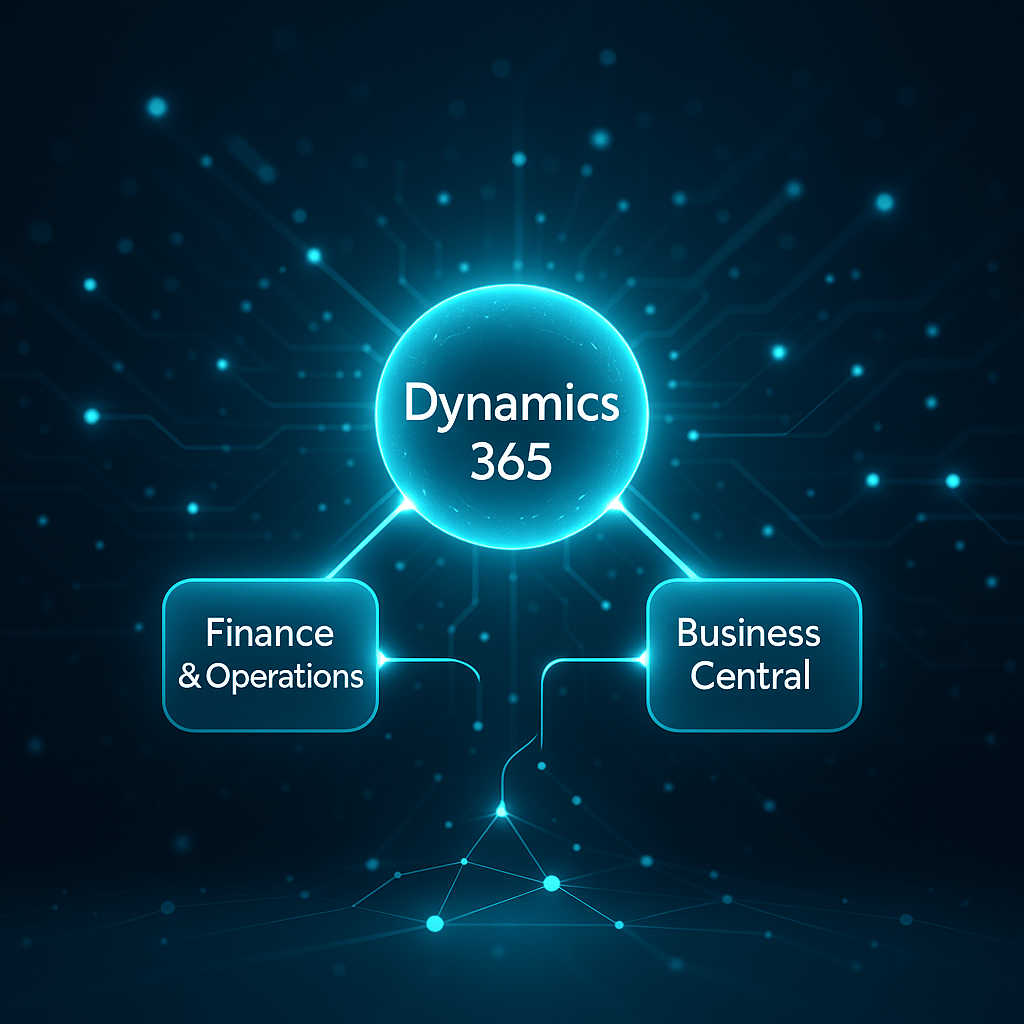
Microsoft Dynamics 365: Where Finance & Operations Meets Business Central
Microsoft has been steadily investing in aligning Dynamics 365 Finance & Operations (F&O) and Business Central (BC) into a unified cloud ecosystem. For organizations that span from mid-market subsidiaries to large-scale global entities, this alignment offers flexibility and consistency — without forcing a “one-size-fits-all” ERP.
1. Complementary Roles, Not Competition
- Business Central (BC): Designed for agile mid-market companies, subsidiaries, or divisions needing fast deployment and flexibility.
-
Finance & Operations (F&O): Enterprise-grade ERP for complex, multinational organizations with advanced requirements across finance, supply chain, and manufacturing.
Together, they allow businesses to scale seamlessly — BC for smaller units, F&O for enterprise complexity.
2. The Power of One Microsoft Cloud
The real strength of Dynamics 365 lies in its integration with:
- Power Platform (Power BI, Power Automate, Power Apps) for analytics, automation, and extensions.
- Data-verse for unified data management across apps.
- Azure for scalability, security, and AI capabilities.
- Microsoft 365 for collaboration, embedding ERP data into familiar tools like Teams and Excel.
3. Integration Between F&O and BC
Microsoft is closing the gaps between F&O and BC through:
- Data-verse connectors that simplify reporting across entities.
- Virtual tables and APIs enabling real-time data sharing.
- Shared governance models for businesses running both platforms simultaneously.
This approach allows companies to adopt a hub-and-spoke model: F&O at headquarters, BC for subsidiaries — without losing alignment.
4. Future Outlook
With Microsoft continuing to invest in AI-driven insights, embedded analytics, and tighter platform integration, Dynamics 365 offers a compelling roadmap for organizations seeking flexibility without fragmentation.
Conclusion
Rather than forcing companies to choose between Business Central or Finance & Operations, Microsoft is enabling a unified ERP ecosystem. This flexibility makes Dynamics 365 an attractive option for businesses with diverse operating models, whether scaling globally or modernizing subsidiaries.
